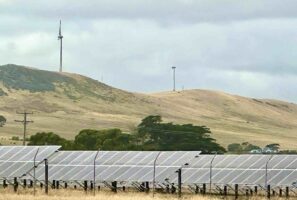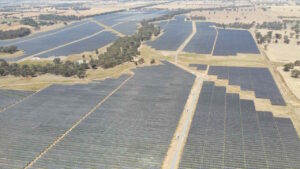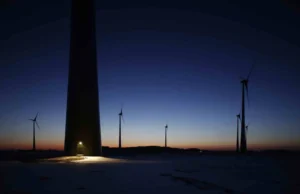The NSW planning department has made a candid admission that significant uncertainty surrounds how to apply the state’s high-level climate targets to individual fossil fuel developments, while recommending that an expansion of an existing coal mine could proceed.
NSW planning authorities are currently considering an application from Whitehaven Coal to expand the Narrabri Underground coal mine into a third stage. The expansion would extend the life of the mine – which has the capacity to produce 11 million tonnes of coal each year – by a further 13 years, until 2044.
In a blunt admission of the difficulties in assessing the potential climate change ramifications of such a coal mine expansion, the NSW planning department has conceded that it lacks clear policies to enable the climate change impacts of individual fossil fuel projects to be assessed against the state’s emissions reduction targets.
The concession was made in a referral to the NSW Independent Planning Commission, published on Wednesday, along with a detailed assessment report prepared by the department, which outlines department’s views that the coal mine’s expansion is “approvable”.
While the department noted the state government has put in place a range of high-level goals for the state’s climate change efforts, such as a target to reach net zero emissions by 2050 and to cut emissions by 50 per cent by 2030, it was not clear how these policies could be applied to the planning assessment of individual projects.
“There are still a range of uncertainties about the specific application of the various policies to individual [state significant development] applications under the [Environmental Planning and Assessment Act],” the report states.
“There is no clear methodology to assess the relative scale (or associated consequences) of emissions in a consistent manner, nor are there any definitions of different levels of emissions.”
“There are no performance criteria or limits provided (e.g. maximum annual or total emissions) for any development types (e.g. coal mines, power stations, or industrial facilities), nor is there any clear timeline to measure any ratcheting down (e.g. a plan for staged reductions in fugitive emissions).”
The report also highlights the difficulties in assessing potential mitigation or offset measures that may be imposed as a condition of a project development approval.
“In the absence of specific policy on impacts, standards, mitigation or offsets, the Department has assessed the Project’s GHG emissions in a holistic way with reference and comparison to other recent project consents,” the department’s report says.
Advocacy group Lock the Gate Alliance spokesperson Georgina Woods said the concession by the NSW planning department highlighted the need for the state government to properly consider the climate change impacts of new coal projects and slammed the department’s suggestion that the coal mine expansion could be approved, despite the clear policy gap.
“Whitehaven’s Narrabri Underground expansion would mean this coal mine is responsible for the highest volume of direct and indirect carbon emissions of any coal project determined by the Independent Planning Commission to date. This is clearly unacceptable at a time when the world desperately needs to reduce greenhouse gas pollution and avoid worsening the climate crisis,” Woods said.
“The department’s decision to recommend approval to this huge new source of greenhouse pollution is particularly infuriating because, for the first time, the department actually sought advice about the project’s carbon emissions.”
“The department’s admission that New South Wales has no coherent policy about how to prevent and manage the greenhouse emissions of the state’s coal mines is damning, but that policy failure should not mean this damaging project gets waved through,” Woods added.
Prospective fossil fuel projects have faced increased pressure to account for their potential climate change impacts, particularly through the NSW planning process.
In a landmark decision of the NSW Land and Environment Court, potential climate change impacts were found to be a relevant factor in a decision to refuse development consent for the Rocky Hill coal mine.
In his decision, Chief Judge of the Land and Environment Court, Brian Preston, cited the ‘dire consequences’ of the proposed coal mine and recognised the demonstrated need for “a rapid and deep decrease in greenhouse gas emissions.”
Following that decision, the NSW Independent Planning Commission refused to issue development consent for the Bylong Coal Mine, citing the project’s potential to negatively impact the state’s environmental, heritage and agricultural values.









